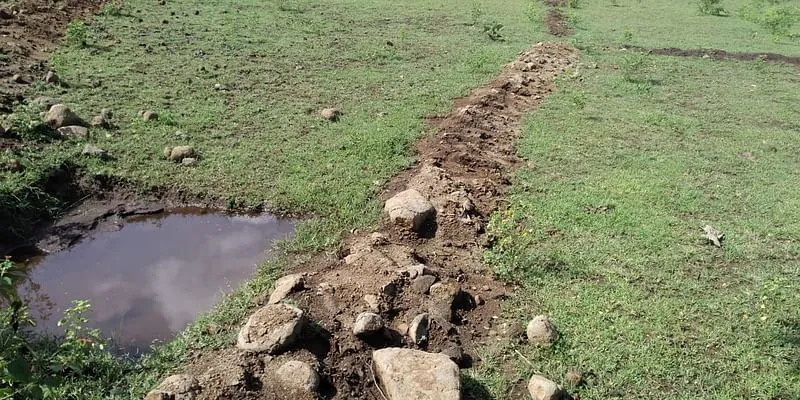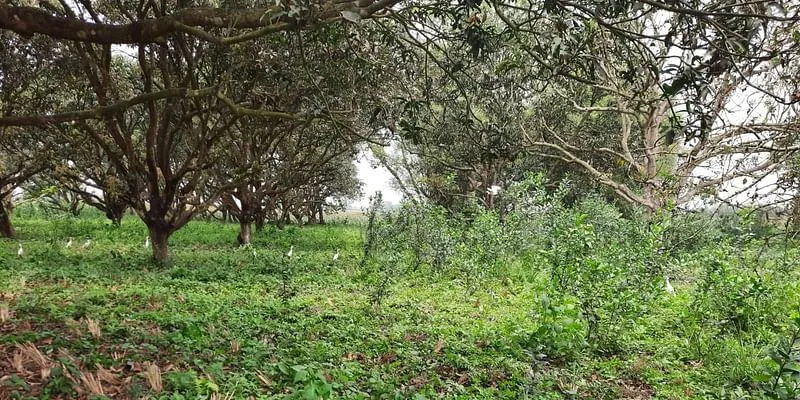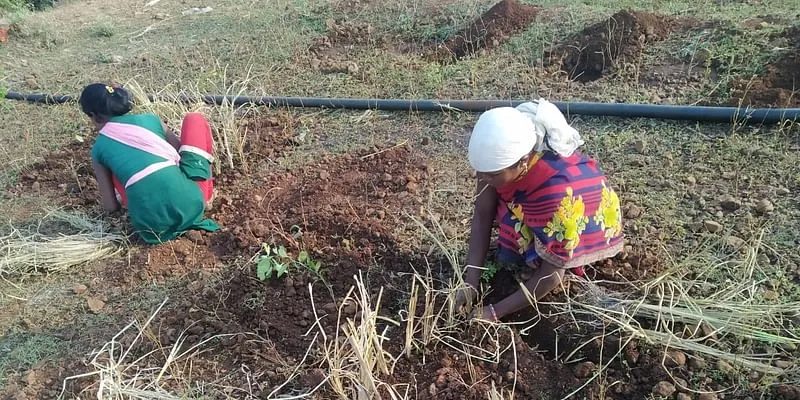India’s diverse geography includes a number of forest reserves and green belts. These are inhabited by several tribes that not only make a livelihood out of these greens but also nurture them. However, the lives of people living in the small belt of the Kanha forest reserve have been under a lot of stress as the land has become barren over many decades.
The years of commercial farming and deforestation not only depleted the soil but also impacted the livelihoods of the tribal Gond and Baiga communities.
Enter GAIA – the Earth Foundation, whose social reforestation initiative Mission Prakriti has been helping these farmers and improving their livelihoods for over three years now.
“Mission Prakriti works on a socio-ecological model, wherein we are not looking at just the environmental part of the forestation but are also looking at how it is going to solve other social problems,” says Gayatri Chauhan, Founder of GAIA – The Earth Foundation and Mission Prakriti

The initiative is driven by focusing on social forestry, which helps in solving two critical issues: climate change and social inequities that people in underserved communities face.
Through Mission Prakriti, GAIA – The Earth Foundation aims to restore water ecosystems and protect the vast biodiversity in India.
With the pandemic affecting livelihood, especially the farmers, Prakriti’s goal is to not only reverse the ill-effects of deforestation and urbanisation but also address a multitude of ecological challenges without hurting any livelihood prospects for local communities.
The Narmada Valley Food Forest
The pan-India social forestry programme is focused on cultivating multi-layered food forests to improve farmer livelihoods and environmental ecosystems.
At present, more than 2,000 acres of barren land are in the process of being cultivated by more than 1,000 farmers across Madhya Pradesh, Karnataka, and Rajasthan into green forests.
The first phase of the initiative was started in Madhya Pradesh when a local NGO working with over 50 farmer families from the Gond and Baiga tribal communities in the Narmada Valley area approached GAIA – The Earth Foundation. The NGO was providing education to these farmers’ children.
“But they noticed that families were facing a lot of difficulties; they were getting poorer by the day as the land was becoming barren,” Gayatri says.
These 500 acres of land were a part of the Kanha Forest Reserve, but became barren over the years due to commercialisation and deforestation.

This belt was made worse due to mono-cropping that was continuously practised by the farmers. This became a major environmental and social concern.
So, Mission Prakriti introduced the Narmada Valley Food Forest project to improve these lands and the situation of these farmers by working with the NGO, which has been working in these areas since 2010. In the first phase, the team has managed to replenish over 50 acres of land of the 500-acre project.
The farmers were the owners of the land, and Prakriti helped them procure plants that could grow, along with helping them sell their produce. They also provide them with a monthly salary for working in their own field, which was otherwise barren.
The forests are made with a simpler version of the Miyawaki technique, without increasing the cost or introducing foreign species. The species used are those that can adapt to the soil without needing any additional manure and those that can take care of each other – tubers, creepers, herbs, shrubs, fruit trees, nitrogen-fixing trees etc. The forest is lined with lemon trees, which act as a natural fence.
“We are trying to create an ecosystem that can continue to flourish on its own after a couple of years of care,” Gayatri says.
The organisation is also trying to sell the produce – mango, jamun, lemon, turmeric, among others – to urban consumers to increase the demand for natural, forest-grown produce.
An important factor that aids the sustainability of Mission Prakriti is the vetivers. These vetivers are planted in empty spaces. They go deep into the soil and fix the nitrogen, which, in turn, makes the soil extremely fertile.
Gayatri shares that plants with vetivers around them grow 1.5X to 2X more than those without vetivers. These vetivers also have a strong carbon sequestration potential.
The impact
Mission Prakriti’s work so far claims to have generated about wages of Rs 50,000 per acre per annum. In addition, through the forests, it sequesters about 15-20 kilograms of carbon per square metre. (Carbon sequestration is the process of capturing and storing atmospheric carbon dioxide, reducing the quantity in the air).
“We have also been able to create a carbon offset programme for corporates, especially in the manufacturing sector for those who have huge carbon reduction targets. They can incorporate energy-efficient measures in their own operations, or they do some other forestation to offset their carbon,”

Like the NVFF projects, Mission Prakriti is also working on other forests in India – Piplantri Food Forest in Rajasthan (100 acres in phase 1), NavSahyog (1 acre), and CCD Food Forests (50 acres) in Karnataka.
Mission Prakriti is globally recognised by the United Nations Framework Convention on Climate Change (UNFCCC) through the Marrakech Partnership for the work done around sustainable land use.
“Through the partnership, we help enable environmental, economic and social system transformation, promoting higher ambition of all stakeholders to collectively strive for the 1.5 °C temperature goal and a climate-neutral and resilient world,” Gayatri says.
Challenges and the road ahead
While the initiative has been running successfully, funding was a major challenge, as convincing the investors about building an ecosystem that would take three years to grow was difficult, Gayatri shares. However, some corporates are donating their CSR funds to the cause (names not disclosed).
“The amount we need is about Rs 5 lakh per acre per annum, with support for about three years,” Gayatri says.
For the next 10 years, Prakriti’s goal is to cover at least 100,000 acres of land and touch the lives of 50,000 farmers in India by 2025-2026.
Through the initiative, we want to create a socially inclusive rural India by improving the farmer income by at least 3X , tackling social inequities, and enriching the lives of rural communities through the restoration of barren and unproductive lands.
“It may not be a commercial project that we have to really scale because all of them have different climatic conditions and the farmers have different problems. But, at the same time, the forests are trying to solve a similar problem for the environment and the local communities,” Gayatri says.
Article first published on YourStory

